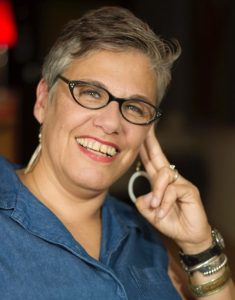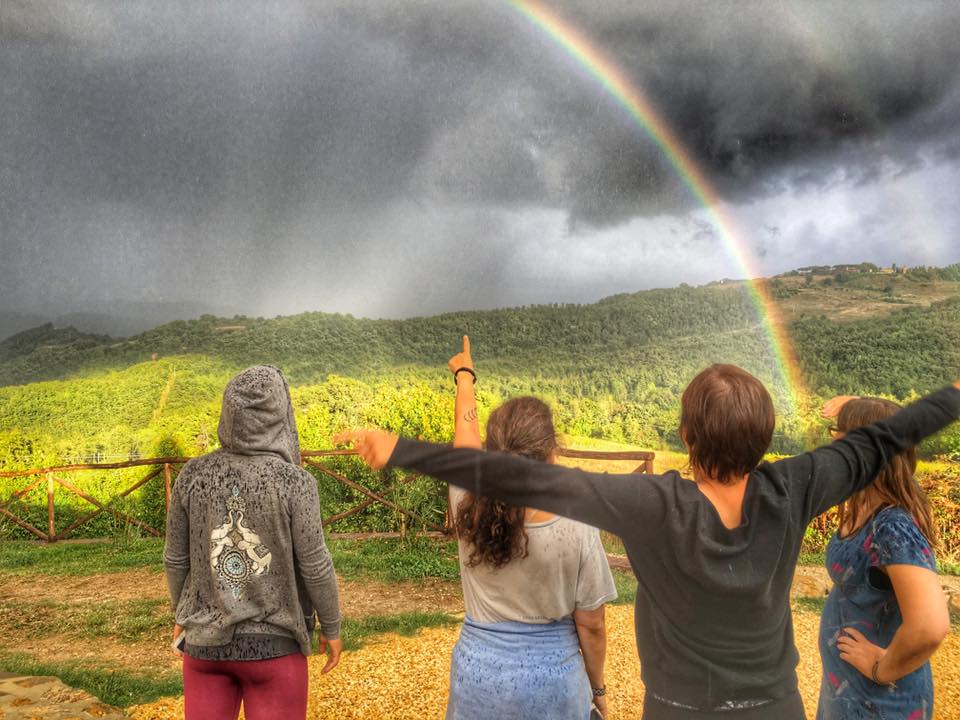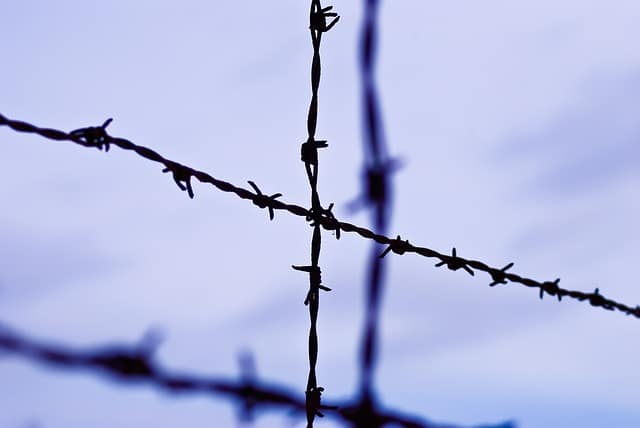By Jessica Handler
When I was in my twenties, the house I shared with roommates in Arlington, Massachusetts was vandalized with a Molotov cocktail. This was the mid-1980s. The bomb was made of a small Pepsi bottle, a washcloth, and a burning match. The incendiary fluid was probably rubbing alcohol or gasoline.
What happened was this: on a sunny afternoon, my roommates and I heard a thud at the front door, and then we smelled smoke. I don’t remember running to the foyer. I do remember standing by the door as the cop took our report. I felt stunned and weirdly exposed, although I was fully dressed. A synagogue in the neighborhood had been hit a few days earlier, he told us.
The cop taking the report didn’t know why we were targeted. We were the renters on the top two floors, the homeowners lived on the first. I don’t recall if all the roommates’ names were on the mailbox, and anyway, only two of the names of the seven people in the house were identifiably Jewish.
Bombing buildings where Jews assembled wasn’t news to me. I grew up in Atlanta, where the “Temple bombing” — the dynamiting in 1958 of the Hebrew Benevolent Congregation, known locally as “the Temple” — was a story so well known as to have been worn smooth. White supremacists had committed the crime years before my family arrived in the city. The community’s outrage helped galvanize Atlanta’s Civil Rights movement.
My surname is often not recognized as Jewish. It’s not obvious, like Goldman or Levy.
My parents raised me in a Judaism not centered on belief in a higher power, but belief in artistic and intellectual preeminence. We revered Maurice Sendak, Leonard Bernstein, Samuel Gompers, and Adrienne Rich. Jews are smart, talented, and honorable. Jews have a responsibility in tikkun olam, or repair of the world. This reads to me now as a kind of cultural pride tainted with racism, but that was in no way my parents’ intention. Look what we can do, was their point. Look what we have done so far.
The subtle message was that excellence creates advantage, and advantage elevates a person above persecution and ridicule. Except, of course, it does not.
My family did not attend synagogue. We celebrated the Jewish holidays randomly; primarily Passover because of my father’s fealty to decrying any oppression whenever possible and his fondness for celebrating rituals related to freedom. Other than cheerful and slightly weird Seders involving bottles of Glenlivet single malt Scotch, my mother cooking a brisket, and a general showing off for dinner guests, my father’s Jewish practice had come to a screeching, resentful halt at his bar mitzvah, which apparently was orchestrated by his social-climbing mother and conducted by a mean-spirited rabbi.
When I was about ten years old, my father told me about an incident that had occurred in a country courtroom in North Carolina, a state away from where we lived. A man had approached him with a question after a trial. The man asked him if it was true what he’d heard, that my father was a Jew.
“That’s right,” my father answered.
The man asked could he feel my father’s head. My father described for me how he had leaned forward and let the man dispel the myth he had grown up with. He was, my father explained, checking for horns.
The scariest person I knew when I was a child was a friend’s grandmother, called Bubbe. I didn’t know then that the word was Yiddish for Grandmother, and no one informed me. My guess at the time was that Bubbe was her given name, this wraith of a woman in a urine-stained nightgown who slept on a mattress in her son’s laundry room, who wandered the neighborhood wringing her hands and beseeching passersby in a language I did not know.
Last fall, I stood in my closet and considered my grandmother’s Star of David necklace. I’d briefly tried to wear it after she died in 1995, but the sensation of the delicate gold chain against my throat created a crawly anxiety on my skin that killed that experiment in less than a day. For as long as I can remember, unseen hands choke me in my nightmares. That throttling sensation is why I rarely wear high collars or turtleneck sweaters, and why most of my necklaces lie in their velvet boxes in my closet.
But I was packing to teach a writing workshop in Israel, and my sudden desire to tell my grandmother startled me. My mother’s mother, Josephine Braunstein Richman, would have loved to know that I was going to Israel, and that I was going as a working writer, traveling with my kind and funny husband whom she never met but would have adored.
Her Magen David is tiny. The six pointed star is framed inside a circle smaller than a dime. There’s a diamond smaller than a peppercorn in the center. I took the necklace from its black velvet box and hooked it around my neck. Grandma Jo, never religious but a believer in God (and if I were a religious Jew, I would write that as G-d, because of the perceived disrespect in writing the full name should the document, and thus the name, be destroyed) was going to Israel.
The six pointed star commonly seen as a declaration of Judaism appears simple, but it’s a complicated image. See the symbol in old photographs and think of the yellow fabric stars sewn to a Jew’s outer garments during the Holocaust. We see you, the crude cut out screamed in all its yellow ugliness. One scholarly approach describes the six points as male attributes of God. In this line of thinking, the center hub is the female attribute. The six pointed star, one triangle across another, has been evident in the ornamentation of synagogues in Europe, North Africa, and the Middle East since the 17th century. The Magen David (David’s shield) was adopted by the first Zionists at the end of the nineteenth century as the symbol of the movement. And now the star occupies the center field of the blue and white Israeli flag. See the star, think Jew.
We left for Israel a week after Donald Trump was elected President. I was a little afraid to go, because I was afraid we might not be allowed back in. A fear had begun to rise in me. White supremacists supported the candidate. The candidate tweeted an image of his opponent and a six-pointed star over a field of dollar bills. The candidate mocked nearly everyone who didn’t fulfill his concept of wholeness. I did not support him, and had not believed he would actually win.
Where will we go if we have to run, I asked my husband after the election.
We won’t have to run, he said. This will not get that bad.
“That” bad. We know historically what that means. While my husband slept, I lay beside him in the dark, wondering who would care for our pets if we were rounded up, deported, or killed. I envisioned myself selecting what few beloved books and photographs I would try to take with me should things get “that” bad. Every time I tried to make that mental packing list, I gave up, my throat tight with anger and terror.
After Trump was elected, I read a number of “now you get it” think pieces written by authors of color. Yes, now I get it. I was raised to be an ally, never thinking that I might be a victim.
Who, after all, is raised to be a victim?
Contemporary American Jews say that we remember the Holocaust, but mostly, we remember it symbolically. And yet twenty four percent of American Jews voted for Trump, according to a Pew Research analysis released the day after the election. The journalism website Pro Publica has documented more than three hundred anti-Semitic incidents in the United States between November of last year and this past February. What are you not remembering, I want to ask each of those voters.
Eretz Israel did not call to me, as my husband’s family insisted it would, when we deplaned in Tel Aviv in November. My home is America, but America is no innocent. Consider the Trail of Tears, or the Reservation system. Consider the internment of Japanese-Americans. Consider slavery and the legacy of slavery. Consider every form of institutionalized racism.
My family came to America in the first years of the twentieth century; my mother’s father from Russia, my father’s father from Lithuania. Each of the girls who grew up to be my parents’ mothers were already here. Born American, not naturalized. My family does not have a Holocaust story that haunts the darkest places in our memories. I know of no relatives who escaped or didn’t, who hid or were hidden. Surely there are distant cousins, aunts, uncles, but those names and stories never made their way to me, and probably not to my parents.
My mother and I made a pact more than a decade ago. Were the cattle cars to come, if we were rounded up, we would poison ourselves side by side before anyone could take us against our will. We imagined the misery of the dark and crowded cars, the days without food or water, the feel of the straw or worse beneath us. We would probably never come home, and we would, in fact, probably die. And how would we poison ourselves? Our discussion failed at that juncture, although we both knew any number of ways. Drano. A barbiturate overdose mixed into yogurt.
Gasoline and a match.
This idea from my mother who had by then lost her two youngest children to disastrous illnesses, had divorced my father, and raised me, her eldest, to seize every day with joy and vigor. I don’t know now what prompted our grim conversation; maybe Mel Gibson’s first public anti-Semitic rant, or a news report of a swastika burned into a suburban lawn.
When I was a child, a freight train ran every night less than a mile from our house. I listened for it every night from my bed. The rumble lulled me to sleep. When I was grown, I met a woman who had also lived in the neighborhood, near those same railroad tracks. She had been middle-aged when I was a child. When I learned this, I reminisced fondly about the sound of the freight train at night in our mutual neighborhood.
“I hated that train,” she said. “It reminded me of Poland in the war.”
Even if I had indelicately looked, I would not have seen the number on her arm. She was wearing long sleeves. But the difference in her experience of our American suburb, in her ranch house not markedly different from my parents’, her trips to the same A & P and deli and hair salon and park stunned me. If she had been perhaps forty years old when I was ten, that would put her birth year in the early 1930s. One train may hide another, as Kenneth Koch wrote. My train, a benign player in a bedtime story. Her train, a thief in the night, taking who – her parents? Her? – to hell. I didn’t ask who the train had taken. I had already invaded her memories too carelessly.
Lately, in America, I sense the threat of extermination – choose your threatened community, ethnicity, appearance – with the same dread that accompanies the sight of a bruise that darkens instead of fading. Whoever threw that sad little Molotov cocktail at my post-college house made no distinction between secular or religious Jew, between a Holocaust survivor or a blithe suburban American kid.
I haven’t returned my grandmother’s necklace to the box on my bureau. I wear that little gold Magen David every single day. I am wearing it now, at home, as I write. I wear Grandma Jo’s necklace because I want to be seen. Any stranger should know at first glance, indelicately looking or not, what I am. “What” I am, as well as “who” I am, which is a complication of layers that changes with every day and every task. What I am every day, however, is a Jew: difficult, proud, and devotedly secular, wearing a necklace that no longer chokes me.

Jessica Handler is the author of Invisible Sisters: A Memoir (The University of Georgia Press, 2015, Public Affairs Books, 2009) named by the Georgia Center for the Book one of the “Twenty Five Books All Georgians Should Read.” Atlanta Magazine called it the “Best Memoir of 2009.” Her second book, Braving the Fire: A Guide to Writing About Grief and Loss (St. Martins Press, December 2013) was praised by Vanity Fair magazine as “a wise and encouraging guide.” Her nonfiction has appeared on NPR, in Tin House, Drunken Boat, Creative Nonfiction, Brevity, Newsweek, The Washington Post, and More Magazine. Honors include residencies at the Josef and Anni Albers Foundation, a 2010 Emerging Writer Fellowship from The Writers Center, the 2009 Peter Taylor Nonfiction Fellowship to the Kenyon Review Summer Writers Workshop, and special mention for a 2008 Pushcart Prize. Featured as one of nine contemporary Southern women writers in Vanity Fair magazine, she learned to never again wear couture. www.jessicahandler.com




Thank you for sharing your story.